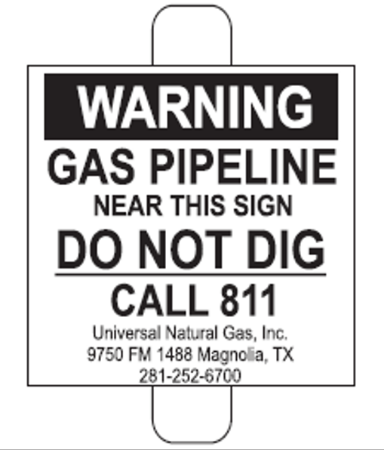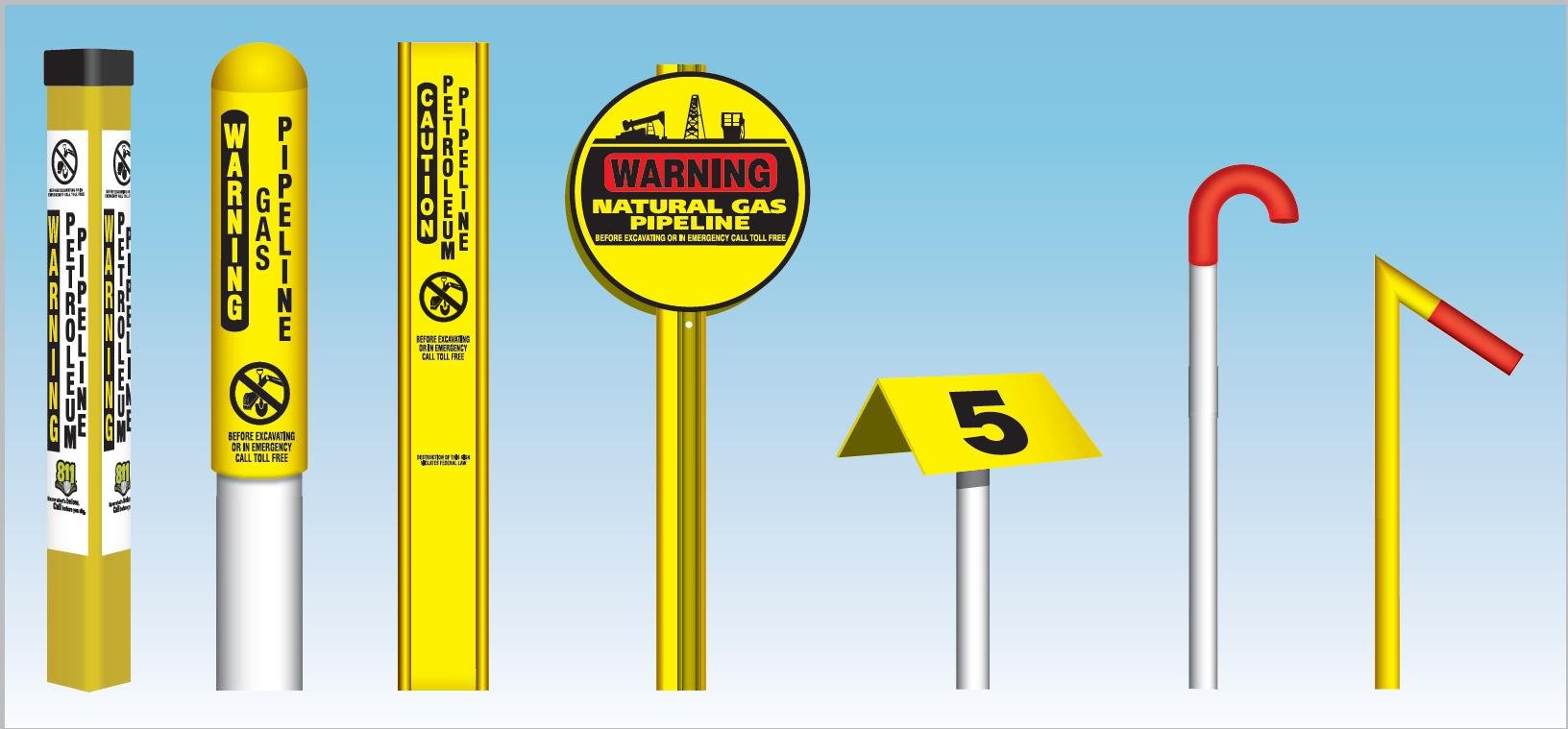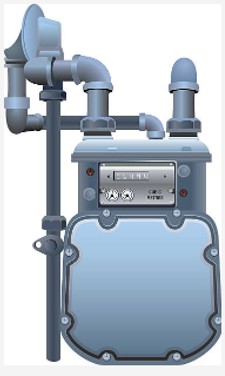NOTICE: In case of an Emergency, call: 911 and 800-925-0705.


PIPELINES IN YOUR COMMUNITY
Living or Working Near a Pipeline
Universal Natural Gas has an extensive system of gas mains installed in road right-of-ways and dedicated utility easements. It is important that YOU know if a pipeline runs through your property or through a property where you are doing excavation work.
Look for Pipeline Markers
Look for these signs: White posts with bright yellow warning signs. Our pipelines are buried underground. These posts are used to show the approximate location of the pipelines. Look in road right-of-ways, intersections, railroads, and along fences.
Check today for pipeline markers posted nearby or on your property, or in your neighborhood, or at a work location.
You should be aware of any markers in and around your neighborhood or work location. Write down the name and phone number of the pipe-line company listed on the marker and keep it in a safe place in case of an emergency involving the pipeline.
Before You Dig or Excavate Call 811
Please remember - the pipeline or utility marker cannot be relied upon to show the exact location of the underground pipeline. The pipeline may not follow a straight course between markers. Never assume the pipeline is too deep to be hit.
To protect yourself and the pipeline, contact 811 before you dig or excavate anywhere near the pipeline.
If you dig or excavate and make any contact at all with the pipeline, or cause what seems to be even minor damage, please advise us immediately. It is important that we inspect and repair ANY damage to the line.
We have an excavation damage prevention program for pipelines in your area. Please call us if you would like a copy of our damage prevention program.
Field Office:
9750 FM 1488
Magnolia, TX 77354
Telephone: (281) 252-6700
Emergency: 1-800-925-0705
Email: info@unigas-tx.com
Office Hours: 8:30-4:30 M-F
Call 811 - CALL811.COM
Before you dig, CALL US. It’s the Law.
Antes de Excavar, Llame. Es la Ley.
Individuals & Companies Who Do Excavation Work
We need your help in preventing pipeline emergencies.
Records show that damage from excavation-related activities, particularly from equipment digging into pipelines, is the leading cause of pipeline accidents. Without proper coordination, excavation activities in the vicinity of underground pipelines can result in very dangerous situations.


PUBLIC SAFETY OFFICIALS
You know to take whatever steps you deem necessary to safeguard the public in event of a pipeline emergency. The following suggestions are offered as a guide:
- Secure the area around the leak to a safe distance. This could include the evacuation of people from homes, businesses, schools, and other locations, as well as the erection of barricades to control access to the emergency site and similar precautions.
- If the pipeline leak is not burning, take steps to prevent ignition. This includes prohibiting smoking, rerouting traffic, and shutting off the electricity.
- If the pipeline leak is burning, try to prevent the spread of fire, but do not attempt to extinguish it. Burning petroleum products will not explode. If the fire is extinguished, gas or vapor will collect and could explode when reignited by secondary fires.
- Do not attempt to operate any of the valves on the pipeline. Improper operation of the pipeline valves could make the situation worse and cause other accidents to happen.
- Contact the pipeline company as quickly as possible. Pipeline marker signs show the pipeline company’s name, emergency telephone number, and pipeline contents.


SIGHT: Look for dust blowing in the air, a white cloud or fog, persistent bubbling in standing water, or discolored vegetation.
VISTA: Los indicios de una posible fuga en las cercanías del ducto incluyen un charco de líquido en el suelo, una nube o neblina blanca, burbujas persistentes en agua estancada, o vegetación descolorida.

SOUND: Listen for any unusual noise coming from the pipeline, like a hissing or roaring sound.
SONIDA: Esté atento a cualquier sonido extraño, tal como un siseo or un rugido.

SMELL: A strong odor, like rotten eggs, will often accompany a pipeline leak.
OLFATO: Esté atento a cualquier olor extraño.
What to Do If a Leak Occurs - Call 911
- Leave the leak area immediately.
- Do not light a match, start an engine, use a telephone, turn light switches on or off, or do anything that may create a spark.
- From a safe location, call 911 or your local gas
- company. Give your name, phone number, a description of the leak, and its location.
- Warn others.
- Do not drive into a leak or vapor cloud area.
Qué hacer si ocurre una fuga – Llame 911
- Abandone el área inmediatamente.
- No encienda un cerillo o un motor, uso un teléfono, encienda o apague interruptores de luces ni haga algo que pueda crear una chispa.
- Desde un sitio seguro, llame al 911 o al número local de emergencia y la compañia de la tubería. Llame sin cobro, si es necesario, y dé su nombre, numero de teléfono y una descripción de la fuga y su ubicación.
- Ponga en advertencia a los demás.
- No maneje por donde haya un fuga o una nube de vapor.
Universal Natural Gas will immediately dispatch personnel to the site of any leak to help handle the emergency and provide information to public safety officials to aid in the response to the emergency. We will also take the necessary operating actions to minimize the impact of a leak.
We need your help in preventing pipeline emergencies. Records show that damage from excavation-related activities, particularly from equipment digging into pipelines, is the leading cause of pipeline accidents. Without proper coordination, excavation activities in the vicinity of underground pipelines can result in very dangerous situations.


